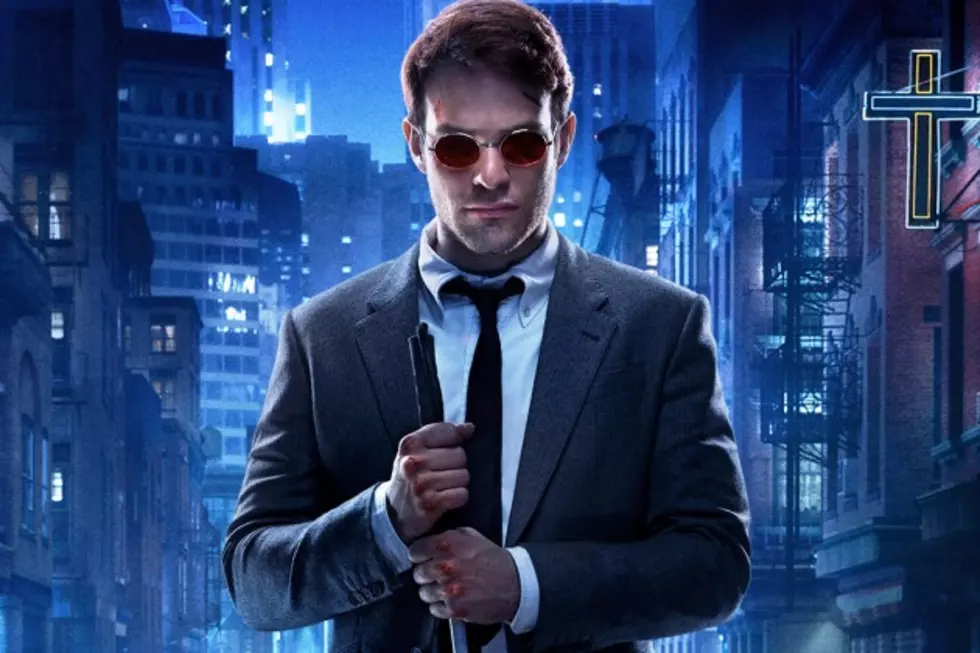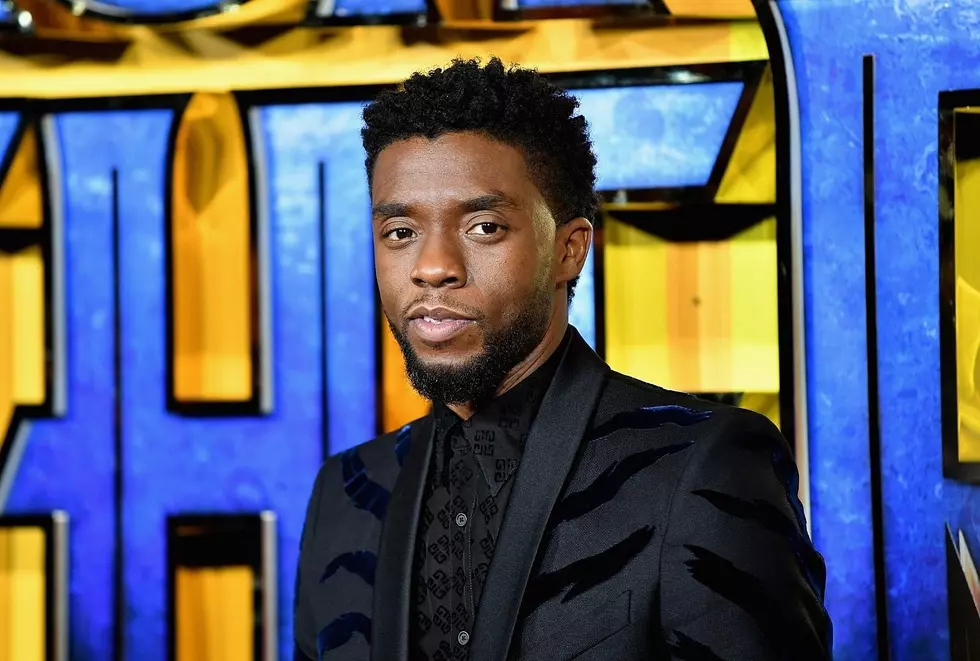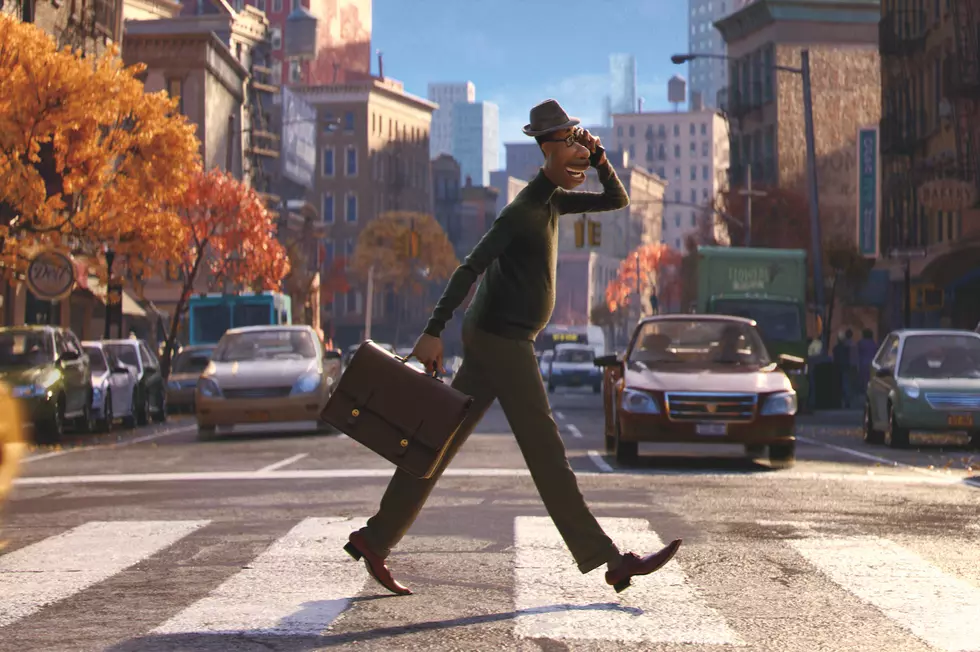
Review: Netflix’s ‘Daredevil’ Is Unlike Anything Marvel Has Ever Done Before
Marvel’s Daredevil occupies the bizarre paradox of feeling completely unique, and uniquely familiar at the same time. We’ve seen superheroes brought to life in every medium a dozen times by now, and every variation on the “hero with tragic backstory takes to the streets to save his city,” even evolving to the point that mega-franchises colliding against an army of Ultron-bots can’t quite conjure the same wonder it did only a few years ago.
Even on the DC side as far back as 2005, Batman Begins already captured the concept of a dimly-lit street-level vigilante with (vaguely) human limits, something The CW’s Arrow has made both a home and spinoff-launching platform of for three seasons now. Marvel’s Daredevil can’t help striking a few of those same notes — masked men jumping off rooftops, dangling baddies and all — yet the five episodes released to critics manage to transcend those stock images in ways the Marvel movies (or even its network tie-ins) never could.
To put it mildly (and tragically spoiler-tight until April 10), at least several dramatic visuals afforded by Netflix’s relaxed standards would never, ever make it into Marvel’s Disney-fied PG-13 cash cows. Daredevil marks a much darker corner of the Marvel cinematic universe, that while entirely its own entity as a crime drama, still works in enough odd references to familiar events (and with far less thud than Agents of S.H.I.E.L.D.) to feel comfortably familiar in a superhero’s world.
It’s everything Nolan’s Batman never had time to explore, and everything Arrow wishes it could be.
Most refreshingly of all, Daredevil’s specificity feels much more intimate and nuanced than its big-screen counterparts, as both Charlie Cox’s Matt Murdock and Eldon Henson’s Foggy Nelson feel perfectly lived-in with their Hell’s Kitchen surroundings, aware enough of their neighbors’ plights to keep their battle for the city personal. After all, It was only a few years ago that Norse gods and jolly green giants thumped space-fish out of the sky into Grand Central Station, yet someone like Foggy focuses on the smaller acts of heroism for everyday people, fixing a woman’s sink before legal measures can help, or reassuring Deborah Ann Woll’s Karen Page to feel at ease with their unsavory* surroundings.
*And yes, anyone familiar enough with modern-day Hell’s Kitchen will know it’s nothing like the criminal breeding ground of decades earlier, though the series manages to weave the neighborhood’s current state into a post-Avengers New York City surprisingly well.
That small sense of humanity permeates the series on every level, particularly as its titular hero stumbles through crime-fighting without a billion-dollar murder-suit, or clandestine government agency backing him up. We’ve heard producers talk at length about the evolution of Matt’s ninja duds into that famous red suit, but that small bit of grounding makes every fight sequence seem that much more brutal, even atop stuntwork on par with Captain America: The Winter Soldier.
Matt never moves so super-humanly cartoonish as to take us out of the fight, yet still never falls victim to that old stuntwork trope of taking on one bad guy at a time. Every hit follows up with a seamless calculated move to stun the next most immediate threat even a second longer, while Matt himself seems exhausted in momentary respites from the action. One early sequence may yet rival True Detective for sheer choreography across a single take, all with nary a digital effect to be seen.
Of course, when Matt isn’t taking down mobsters or bleeding out in a dumpster, Daredevil does its best work as an ensemble piece, affording Foggy, Karen, Ben Urich and more plenty of stories and victories entirely independent of Matt, rarely learning on its titular hero as heavily as most superhero movies. Vondie Curtis-Hall’s Ben Urich especially emerges as a superhero in his own right, dispensing journalistic street wisdom as efficiently as Matt whips machine gun magazines at their owners’ temples, while Foggy seems far from the ineffectual sidekick we’ve come to expect.
And if that weren’t enough, Marvel fans espousing Loki as the movie empire’s sole successful villain will eat an Infinity Stone at the unveiling of Vincent D’Onofrio’s Wilson Fisk, every bit the timid child and terrible monster D’Onofrio says in interviews. The character astoundingly drips with as much innocence as terrifying conviction in his courtship of art dealer Vanessa (Man of Steel star Ayelet Zurer), or larger plans for Hell’s Kitchen, either of which command as much rapture in their unfurling as the Man Without Fear himself. The criminal elements we meet that drive the story against Matt’s vigilantism all feel unique and fully-formed in their own right, but D’Onofrio’s Fisk on his own nearly steals the series out from under its titular hero.
If I had to pick, at least one aspect of the series that might use further work is its incorporation of flashbacks, or the occasionally awkward editing transition, but even then, Daredevil manages to get enough mileage out of the young Matt’s handicap and relationship with his father to far expand on the traditional stock origin imagery. Only occasionally overwrought in their sincerity, the origins and implications of Matt’s moral compass brush up against the vague ideals of heroism that keep many super-leading men bland in their execution, though Cox’s affable portrayal of Matt’s Catholic guilt at least adds a bit of freshness to the dynamic
In earnest, I’ve never had to collect as many thoughts on a series in only 5 of 13 episodes, but fear not, citizens of superhero fatigue. Daredevil was well-worth the wait, and breaks the Marvel movie mold with bone-crunching delight. It’s everything Nolan’s Batman never had time to explore, everything Arrow wants to be without network boundaries, and exactly the street-level drama Marvel needs to complete its superhero world.
Marvel’s Daredevil will debut all 13 episodes for streaming on Netflix on Friday, April 10 at 12:00 A.M. PST / 3:00 A.M. EST.
More From 100.5 FM The River










